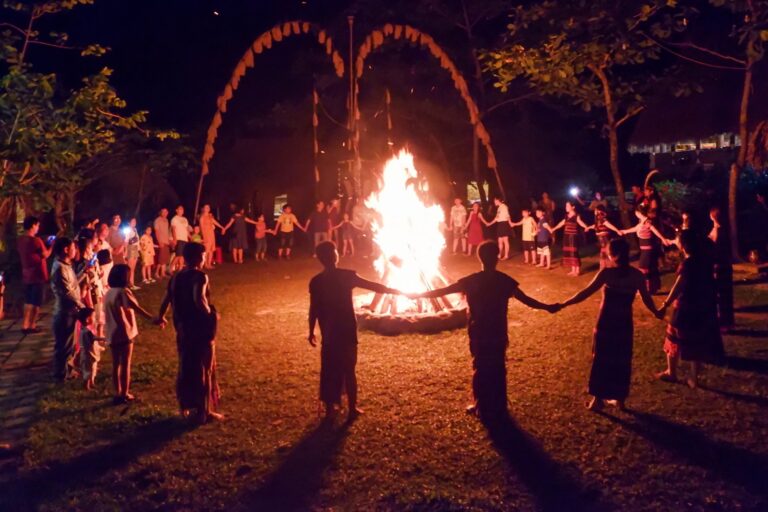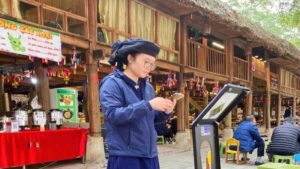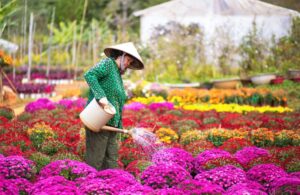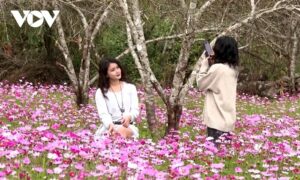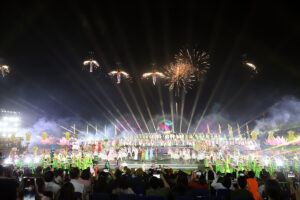In recent years, cultural and spiritual tourism has been increasingly approached and positively recognised by society in both economic and social aspects. Cultural and spiritual tourism is always associated with cultural spaces with sacred elements, where tourists visit, worship, pray, meditate, and participate in festivals.
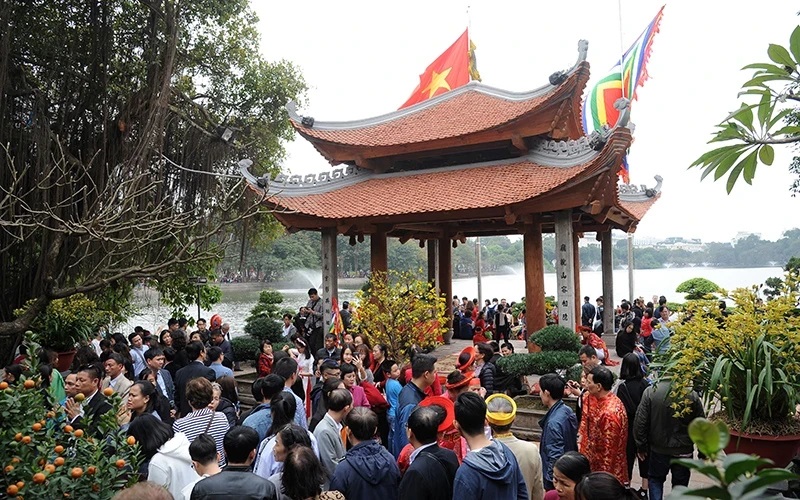
People visit Ngoc Son Temple (Ha Noi). (Photo: Tran Hai)
The number of tourists participating in cultural and spiritual tourism is increasing, accounting for a large proportion of the tourist structure, showing that cultural and spiritual tourism is increasingly important in social life.
The State is also more interested in developing cultural and spiritual tourism and considers it one of the solutions to meet the spiritual life of the people, at the same time preserving and honouring traditional values and noble human values.
With the diversity and richness of religious sites and the large number of beliefs and folk festivals held throughout the year, Vietnam has great potential and strengths to develop cultural and spiritual tourism.
The demand for cultural and spiritual tourism of Vietnamese people is becoming a driving force for the development of cultural and spiritual tourism. Business and investment activities in cultural and spiritual tourism in Vietnam are increasingly promoted, reflected in the scale and nature of activities of cultural and spiritual tourism areas and destinations.
In most localities across the country, cultural and spiritual tourism areas have been formed, attracting a large number of tourists from all over the country, such as: Hung Temple (Phu Tho), Yen Tu (Quang Ninh); Tay Yen Tu (Bac Giang), Huong Pagoda (Ha Noi); Tam Chuc (Ha Nam), Bai Dinh Pagoda (Ninh Binh), Con Son-Kiep Bac (Hai Duong), Tay Thien (Vinh Phuc), Tran-Phu Day Temple (Nam Dinh); Ba Den Mountain, Cao Dai Holy See (Tay Ninh); Dai Nam Van Hien (Binh Duong); Ba Chua Xu Temple (An Giang).
However, cultural and spiritual tourism in Vietnam is currently highly seasonal. Tourists only focus on festivals and worship at the beginning of the year. January is when spring visitors to festivals and spiritual sites increase dramatically, leading to many consequences.
While many spiritual tourism areas mainly exploit existing resources without researching and building new activities and experiences for tourists, they are not strong enough to attract visitors in other seasons. In addition, profiteering from spiritual activities leads to many negative variations, superstition, heresy, and commercialisation occurring at cultural and spiritual tourism destinations.
For cultural and spiritual tourism to be vibrant throughout the four seasons and to develop sustainably, there must be systematic investment. Cultural and spiritual tourism must be developed in the direction of nurturing a progressive spirit, making thoughts and spirits pure, while at the same time fighting and eliminating bad customs, superstitions, and heresies that distort thoughts and darken the spirit.
Cultural and spiritual tourism activities associated with beliefs and religions need to be organised in a more systematic and civilised manner, focusing on cultural experiences.
Therefore, travel businesses must cooperate with localities and units managing facilities and religious relics to build healthier and more in-depth spiritual experience products.
First of all, it is necessary to improve the quality and diversify cultural and spiritual tourism products to attract many types of tourists.
Along with that, it is necessary to diversify the content of cultural and spiritual tourism product packages: Pilgrimage combined with listening to lectures, learning meditation, yoga, visiting spiritual sites, attending festivals and spiritual events, participating in cultural and spiritual art performances, healing, and resorts; combining cultural and spiritual tourism activities with other types of cultural and tourism.
At the same time, it is necessary to build a team of quality and sustainable tour guides for the development of cultural and spiritual tourism.
Localities and tourism businesses, in addition to investing resources, need to increase the tourists' experience based on cultural values, guiding tourists to good traditional values in practicing folk beliefs.
It is necessary to choose truly typical, unique, and valuable festivals to invest in content, scale, and organisation time; at the same time, connect with destinations in the area, thereby forming complete tours for tourists. It is necessary to support and encourage travel companies and tour operators to exploit many cultural and spiritual tours; combine cultural and spiritual tourism with other types such as eco-tourism, homestay, and cuisine, to make the tour and experience of tourists more attractive.
Relic management boards, festival organisers, authorities and residents must provide appropriate support services for tourists in the direction of preserving cultural and spiritual values and doing business in a cultured and healthy manner.
Accordingly, people will not go to the temple to follow the trend but will focus on experiencing and learning activities. Travel time will not be compressed and crowded to go to the temple in the first months of the year but can be spread out throughout the year.
When the community has the right awareness of beliefs and religions, blind beliefs will be reduced; superstition and heresy at cultural and spiritual tourist destinations will also decrease.
Cultural and spiritual tourism is a very attractive cultural tourism product and a characteristic of Vietnam. Exploiting this product line well will bring many benefits, contributing to preserving and promoting traditional Vietnamese cultural values.
However, to develop cultural and spiritual tourism in a healthy, effective and sustainable manner, it requires responsible participation of all levels, sectors, business communities and people.
Dong Viet - Translated by NDO



